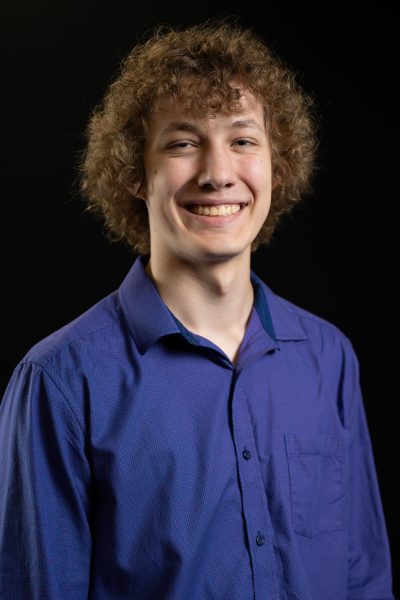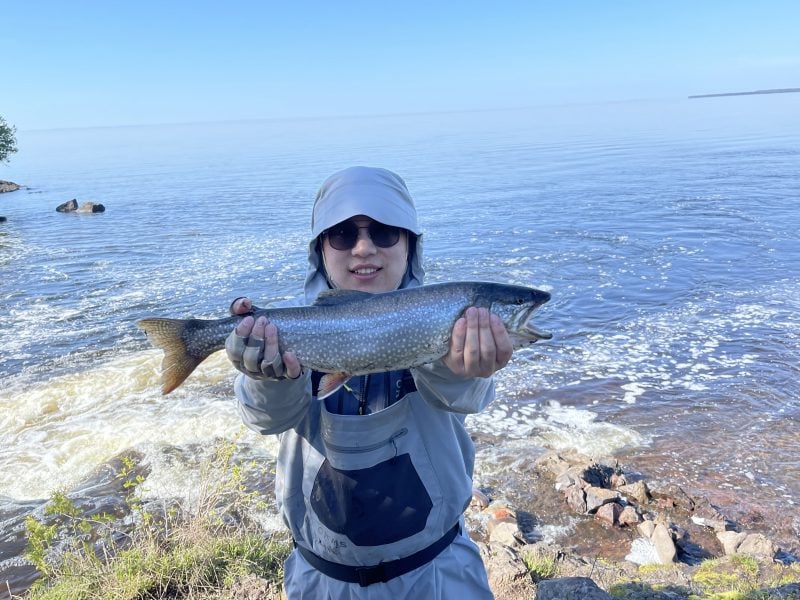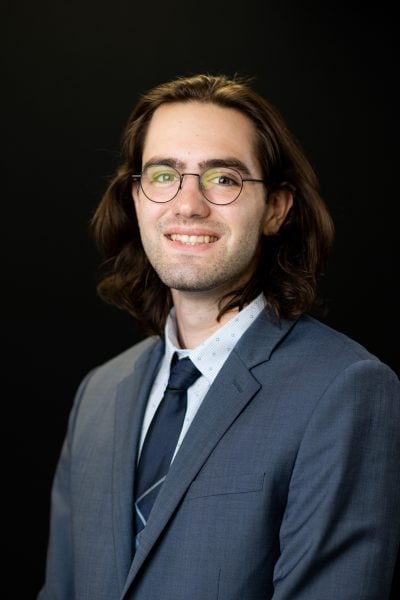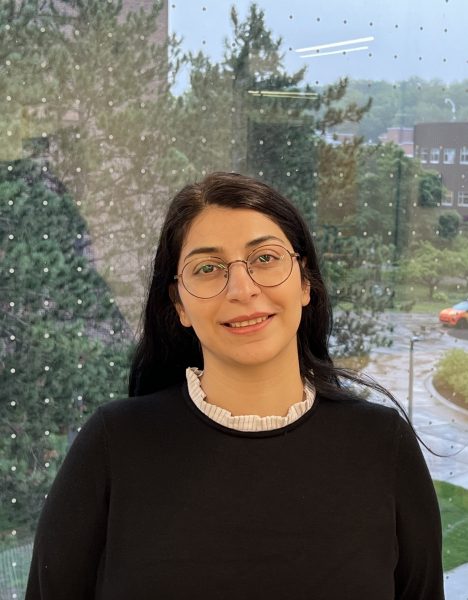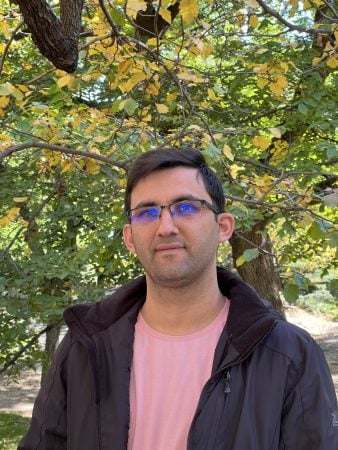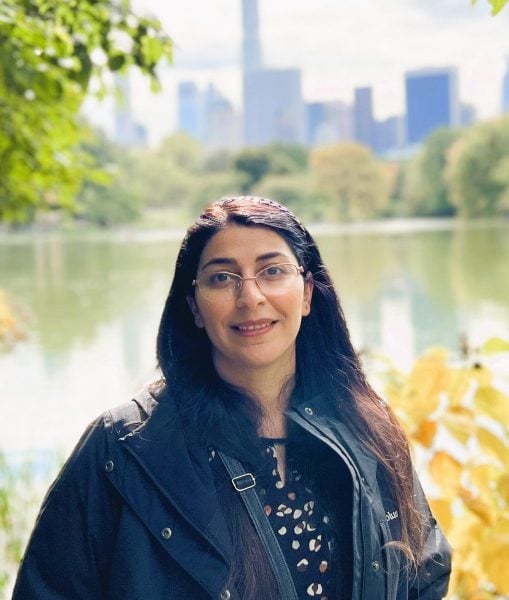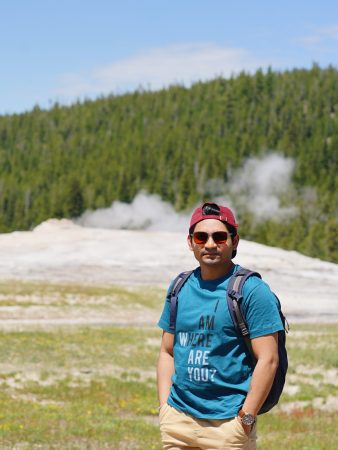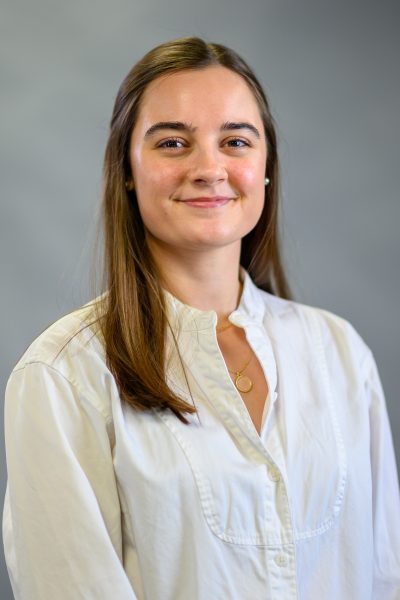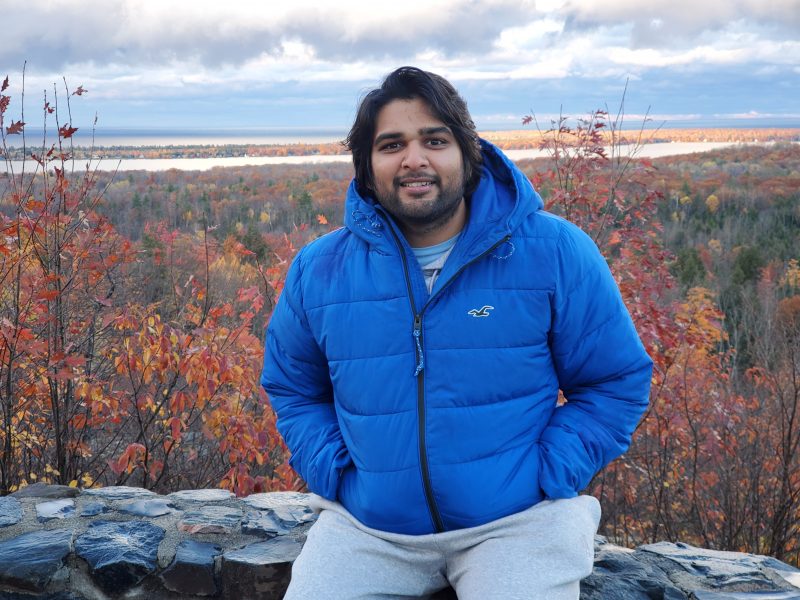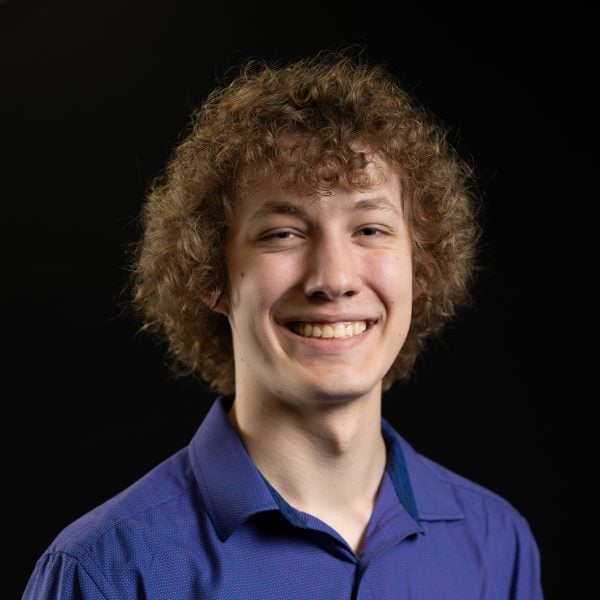
I’m grateful and honored to be awarded a Doctoral Finishing Fellowship. I would like to thank the Graduate Dean Awards Advisory Panel and the Graduate School for their recognition and support as I approach the end of my PhD studies. Their support will let me dedicate my time to completing my dissertation.
I joined Dr. Yu’s Neural Engineering lab as an undergraduate research assistant in 2021 and quickly became fascinated by the brain and developing treatments for neurological conditions. Knowing that our research could improve people’s lives gave me great purpose and drove me to continue onto my PhD.
My research focuses on optimizing deep brain stimulation (DBS) for Parkinson’s Disease (PD) to improve the quality of life of individuals undergoing this treatment. Specifically, I look at optogenetics and adaptive DBS (aDBS). Current clinically used DBS treatment involves delivering high-frequency electrical pulses to target structures in the brain. While effective at treating PD symptoms, adverse effects and limited battery life can limit the quality of life of those implanted. Optogenetics aims to improve on the spatial specificity of DBS by using genetic modification to allow for cells to activate using light. Electrical stimulation is non-specific and can spread to nearby structures whereas using optogenetics, only the specific brain structure is stimulated. aDBS improves the temporal specificity of DBS by using biomarkers found in the neural activity of the brain to deliver stimulation only when the brain needs it. This avoids unnecessary activation to reduce adverse effects and improve battery life of the implanted device. Combining these two powerful optimization strategies creates a more efficient and targeted treatment for PD.
I would like to thank my advisor Dr. Traci Yu for her mentorship throughout this long journey. Her support and guidance helped foster my passion for neural engineering research. I am also grateful for the support of the Biomedical Engineering department and the Michigan Tech community throughout this stage of my journey. As I look forwards to the next chapter, I am thankful for everything I’ve learned and experienced during my time at Michigan Tech.
